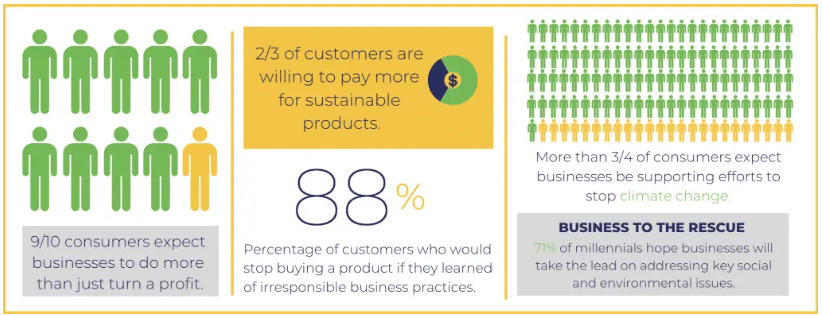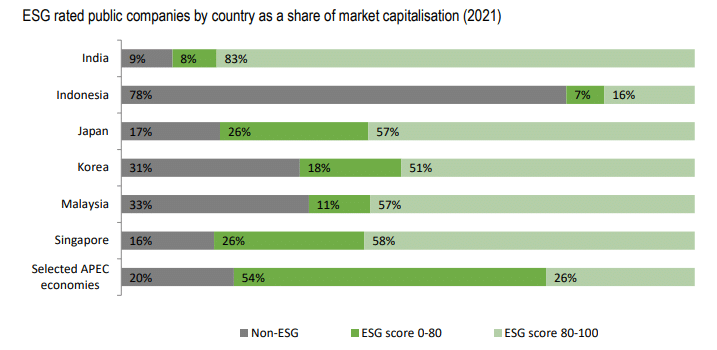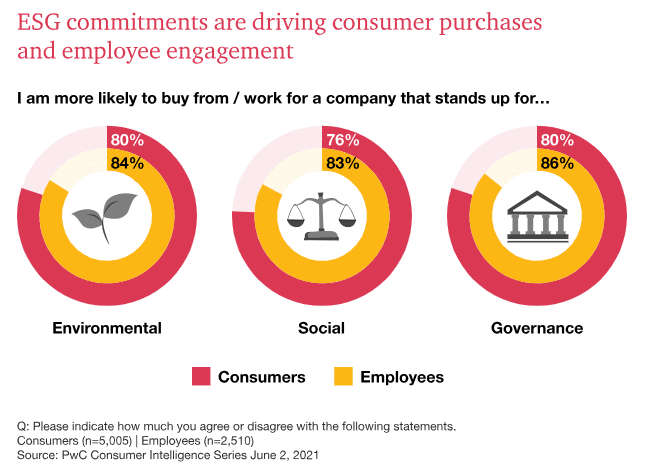How To Avoid Greenwashing
Source: ESG Lead
30 November 2023 – by Eric Koons
Understanding how to avoid greenwashing is crucial in today’s marketplace, where environmental consciousness is essential for businesses and consumers. Consumer demand for sustainable products is increasing.
Why is Greenwashing Bad?
Greenwashing not only misleads consumers but also damages the sustainability movement. It creates support for inadequate climate action by private companies, which delays the necessary progress to meet global climate commitments. For example, the United Nations considers private sector involvement critical to aligning with the Paris Agreement’s goal of keeping warming below 1.5oC.
Taking action to avoid greenwashing is necessary for both consumers and businesses. It is an integral step in fostering a transparent and sustainable market that supports domestic and international climate action and sustainability initiatives.

The Impact of Greenwashing on Consumers
Greenwashing can significantly impact consumers, leading them to inadvertently support brands that do not align with their environmental values. This deceptive practice erodes trust in sustainability claims, as consumers become sceptical of all eco-friendly labels.
For instance, a study by McKinsey found that 88% of Gen Z consumers in the United States do not inherently trust green claims made by brands.
As consumer trust declines, the actions taken by truly sustainable brands hold less value because consumers may not believe or care to verify the claims. This gives businesses more incentive to greenwash, perpetuating the cycle.
How To Avoid Greenwashing as a Consumer
As a consumer, it is crucial to understand different greenwashing tactics in order to avoid them. Additionally, there are a few general strategies to differentiate between genuine and greenwashed misleading environmental claims.
Research Brands Thoroughly
Before making a purchase, consumers should research the company’s environmental record, commitments and claims. Reviewing a company’s environmental, social and governance (ESG) report is a great place to find all of this relevant information in one place.

ESG reporting is increasingly popular for public companies, and as of 2021, companies that accounted for 80% of the Asia-Pacific Economic Cooperation’s (APEC) market capitalisation reported on ESG.
Beware of Vague Terminology
Buzzwords like “eco-friendly”, “natural” and “green” are not regulated and can be used loosely. While they create the idea of being positive for the environment, they hold no real value and can mislead consumers. Consumers should look for specific data and information that substantiates these claims.
Well-established, third-party certifications like Energy Star, USDA Organic or fair-trade labels are a great way to confirm legitimacy.
Look Beyond Packaging, Branding and Marketing
Eco-friendly packaging does not necessarily mean the product itself is sustainable. Consumers should evaluate the entire lifecycle of the product.
For example, Coca-Cola was recently accused of using its bottles as part of an effort to greenwash its public image. A report by The Changing Markets Foundation says that Coca-Cola spent millions of dollars marketing that some of its bottles were made of 25% marine plastic. However, the bottles and marketing didn’t mention that Coca-Cola is also the world’s largest plastic polluter. The green claims are a distraction from the larger pollution issue.
Educate Yourself
Above all, understanding what true sustainability entails is the most impactful way consumers can avoid greenwashing. Making an informed decision in everyday purchases can go a long way in limiting the success of greenwashed products and their environmental impact.
The Risk of Greenwashing for Businesses
At the other end of the spectrum, businesses caught greenwashing can suffer severe reputational and financial consequences. While it is clear that companies can and should avoid blatant greenwashing, unintentional greenwashing is another major consideration. Unintentional greenwashing is often the result of poor internal communication or environmentally responsible actions that are unknowingly less effective in practice than what is assumed.
For example, a 2021 survey found that greenhouse gas emission calculations have an average error rate of 30-40%. Communicating emissions data without considering this in reporting can constitute greenwashing.
With these concerns, some companies are instead starting to stay quiet and not report on their positive and negative environmental progress. However, this is coming into the spotlight and is considered another form of greenwashing known as greenhushing.
Due to this, businesses must consider their communications, reporting and marketing practices carefully.
How To Avoid Greenwashing as a Business: Best Practices
For businesses, avoiding greenwashing is crucial for building trust and a sustainable brand.
Ensure Transparency in Environmental Claims and Stay Away from False Claims
Businesses must prioritise transparency in their reporting and marketing materials. This involves openly communicating the environmentally friendly aspects and the limitations of their products or services.
For instance, if a product uses recycled materials but has a high carbon footprint in its production, this should be clearly communicated. Transparency builds consumer trust and demonstrates a company’s commitment to honest and ethical practices.
Substantiate All Claims of Environmental Benefits With Data and Certifications
Companies should avoid making unsubstantiated claims about environmental friendliness and use of renewable energy. Every environmental claim a business makes should be supported by reliable data or third-party certifications. For example, claims of reduced carbon emissions should be backed by direct emissions data that is understandable for the target audience. This approach avoids greenwashing and strengthens the credibility of the company’s sustainability efforts.
Integrate Sustainable Practices Across All Operations
Adopting sustainable practices should be a holistic approach, extending beyond just consumer-facing aspects. This includes internal operations like energy use, supply chain management, waste reduction and employee training on sustainability.
Businesses should assess and improve their environmental impacts at every level, ensuring their commitment to sustainability is comprehensive and genuine. Even though this work is often internal, it is a core component of annual ESG or corporate social responsibility (CSR) reports, which are becoming increasingly important for consumers and investors.

Commit To Continuous Environmental Improvement
Sustainability is an ongoing journey requiring continuous effort and improvement. Businesses should regularly evaluate and update their sustainability strategies and environmental initiatives, staying informed about new technologies and practices that can reduce their environmental footprint.
This commitment to continuous improvement demonstrates a genuine dedication to sustainability and environmental responsibility and helps businesses stay ahead in an increasingly environmentally conscious market.
The Importance of Avoiding Greenwashing
For both consumers and businesses, avoiding greenwashing is pivotal. Consumers play a critical role in demanding transparency and holding companies accountable. On the other hand, businesses are responsible for being honest and proactive in their sustainability efforts. The collective effort to combat greenwashing is essential for a more sustainable future where environmental claims are both credible and meaningful.
By understanding the nuances of greenwashing and actively working to avoid the practice, consumers and businesses can contribute to a more honest and sustainable marketplace. The journey towards sustainability is complex, but with vigilance and commitment, greenwashing can be significantly reduced, paving the way for genuine environmental progress.
by Eric Koons
Eric is a passionate environmental advocate that believes renewable energy is a key piece in meeting the world’s growing energy demands. He received an environmental science degree from the University of California and has worked to promote environmentally and socially sustainable practices since. Eric’s expertise extends across the environmental field, yet he maintains a strong focus on renewable energy. His work has been featured by leading environmental organizations, such as World Resources Institute and Hitachi ABB Power Grids.
Read more